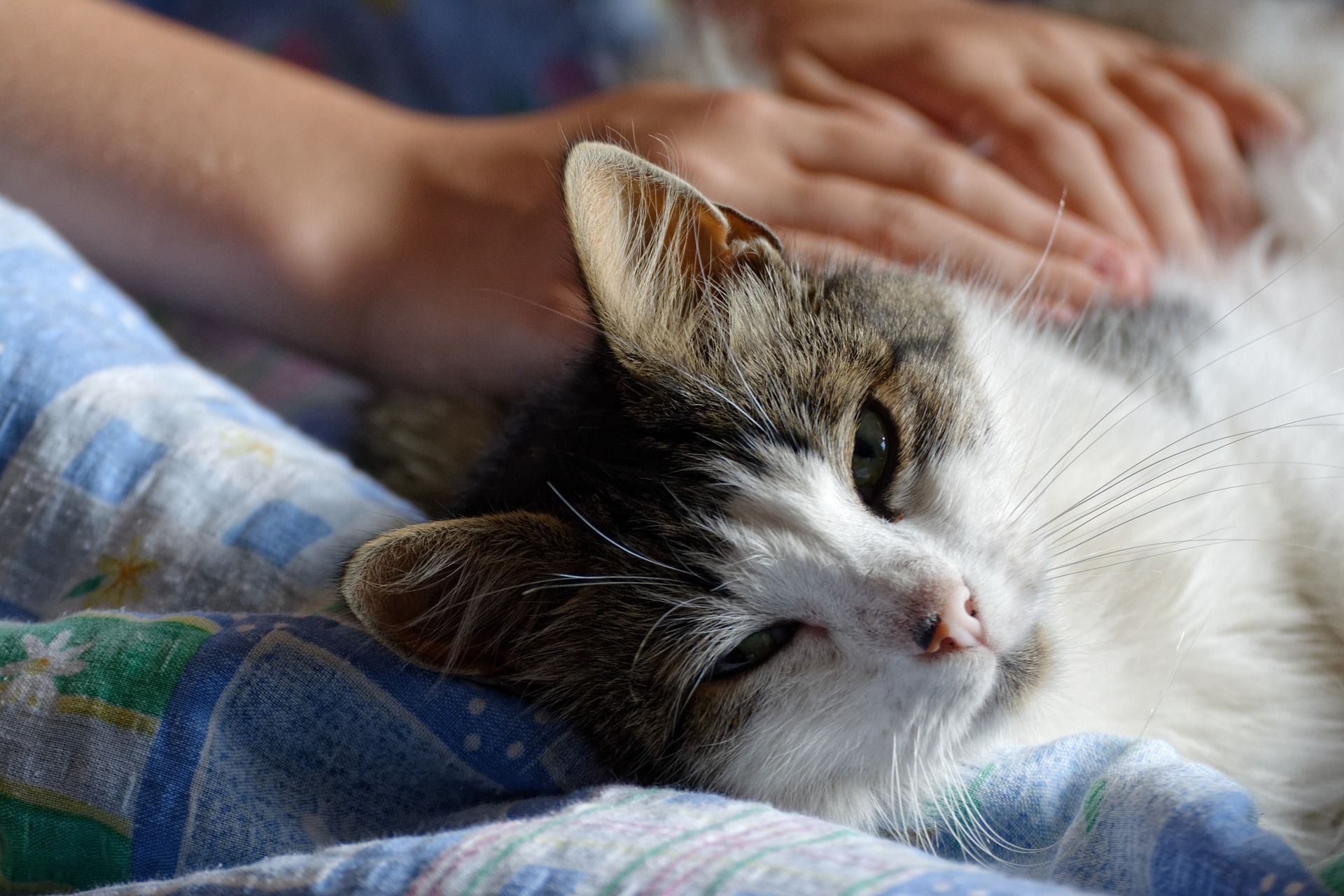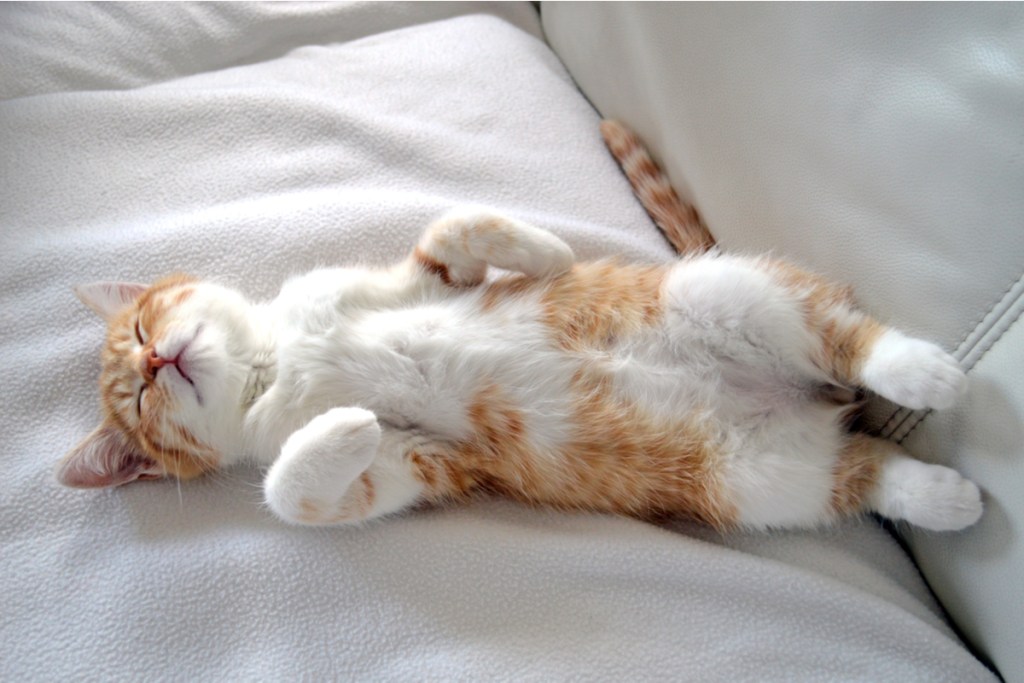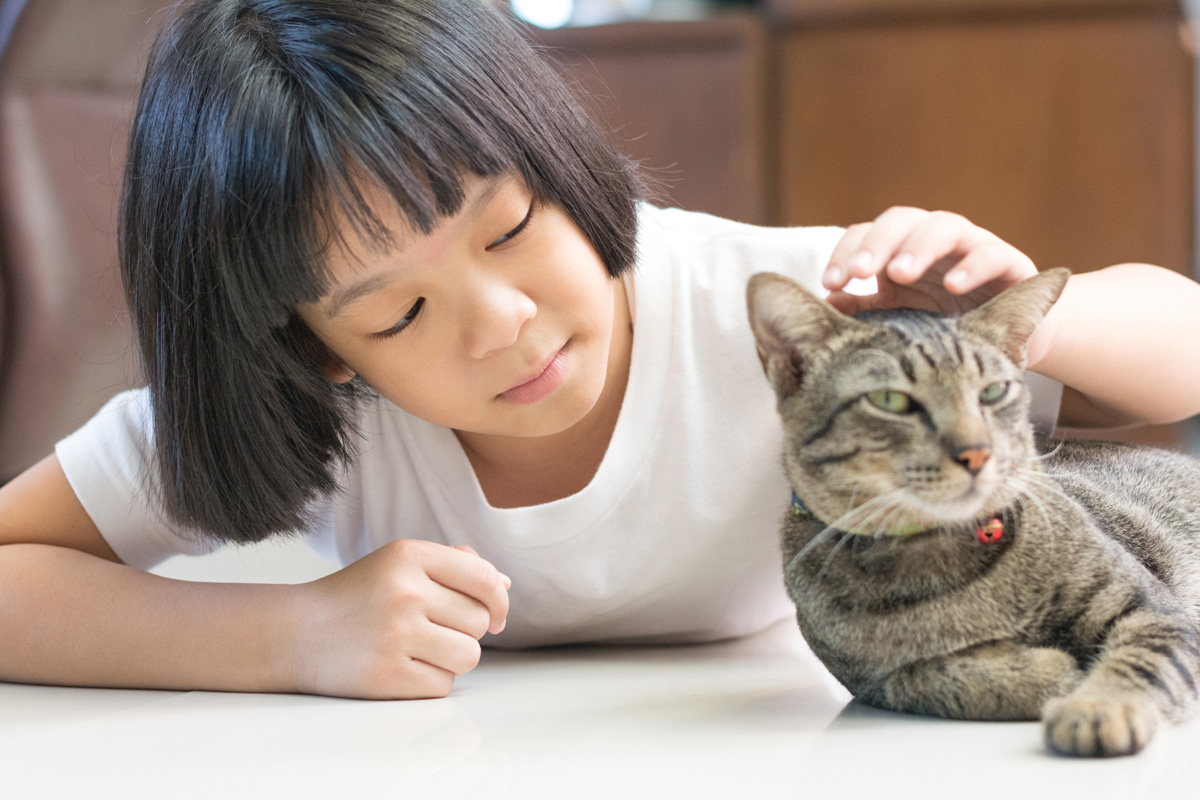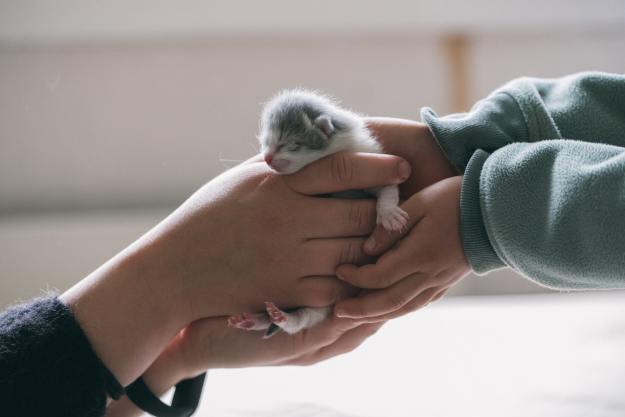Many dogs will enthusiastically greet you, then flop onto the floor and roll onto their backs, hoping for a belly rub. While dogs often enjoy belly rubs, cats aren’t always thrilled by having you pat them on their bellies. Whether or not a cat likes belly rubs really depends on the cat. If you’re looking to show your cat affection, you may want to avoid his belly, at least at first. Knowing how to tell if your cat likes belly rubs can help keep you safe from scratches or nips and ensure that you’re giving your cat attention that he likes and wants.

Do cats like belly rubs?
Some do. It depends on the cat. Cats have very sensitive tummies, and the area can be ticklish. Additionally, a cat’s belly is a vulnerable spot. If your cat lets you rub his belly, he’s showing you that he trusts you.
Some cats are just fine with belly rubs, and they may even roll over next to you and ask for them. Other cats can react strongly, feeling threatened or uncomfortable when you try to rub their bellies. Every cat is different, and even if you gradually introduce the idea of a belly rub, your cat may just never be comfortable with it.
Because belly rubs are hit or miss depending on your cat, it’s important to learn to read your cat’s body language. It’s great if your cat loves tummy rubs, but you’ll need to find other ways to show him affection if he doesn’t.
Signs your cat likes belly rubs
There are many signs that your cat likes belly rubs. Your cat may:
- Expose his belly. Your cat may roll over, stretch out, and expose his body to the sky — and to you. As you rub his belly, your cat should be calm and happy.
- Purr. Your cat may also purr while getting a belly rub.
- Relax. He might reposition himself to get comfy, but quite likely, he’ll partially or fully close his eyes and relax.
Signs your cat doesn’t like belly rubs
If your cat doesn’t like belly rubs, it’s usually easy to tell. Reading his body language is key. These are the signs to watch out for:
- A tense posture. He might tense his body and draw his legs up when you touch his belly.
- Walking away. If he’s been lying with his belly up and exposed, he might flip over or even jump up and walk away.
- Hissing or growling. Your cat might hiss or growl, and if he does, he’s sending you a strong warning to back off.
Some cats will react quickly when they feel threatened. It’s possible that your cat will curl all four legs up and grab your hand with his paws. He might bite at your hand, too. Remember, this isn’t a personal attack on you. Your cat is responding because he’s uncomfortable and may have been startled. He’s defending himself in a natural, instinctive way.
If you notice these signs of discomfort in your cat, stop rubbing his belly immediately. Some cats just aren’t fond of belly rubs, and it’s important to respect that.

Where to pat your cat
While your cat might not love belly rubs, there are other ways to pat him so that he enjoys the experience. Most cats love to have their chin and chest rubbed. Some cats are also used to having you pat their back. Avoid sensitive areas like the paws, tummy, and tail. Observing how your cat reacts as you pat him gives you a sense of what he prefers.

Keeping your cat comfy and happy during patting sessions is a matter of paying attention to him. Cats are good at communicating with body language, so watch carefully. You may start to notice when he’s getting uncomfortable or tired of the attention. Stop patting him before he feels that he needs to get up and walk away. Showing your cat physical affection can be a great way to bond with him, but it’s always important that you provide that affection on your cat’s terms.
Editors' Recommendations
- These useful tips can help you support your senior cat’s health
- Why do cats fight? They’re not just being jerks
- What does it mean when cats purr? It’s more scientific than them just being happy
- Why you should feel honored if your cat sleeps at your feet
- Can cats eat raw chicken? Yes, but there are huge health risks you need to know about


